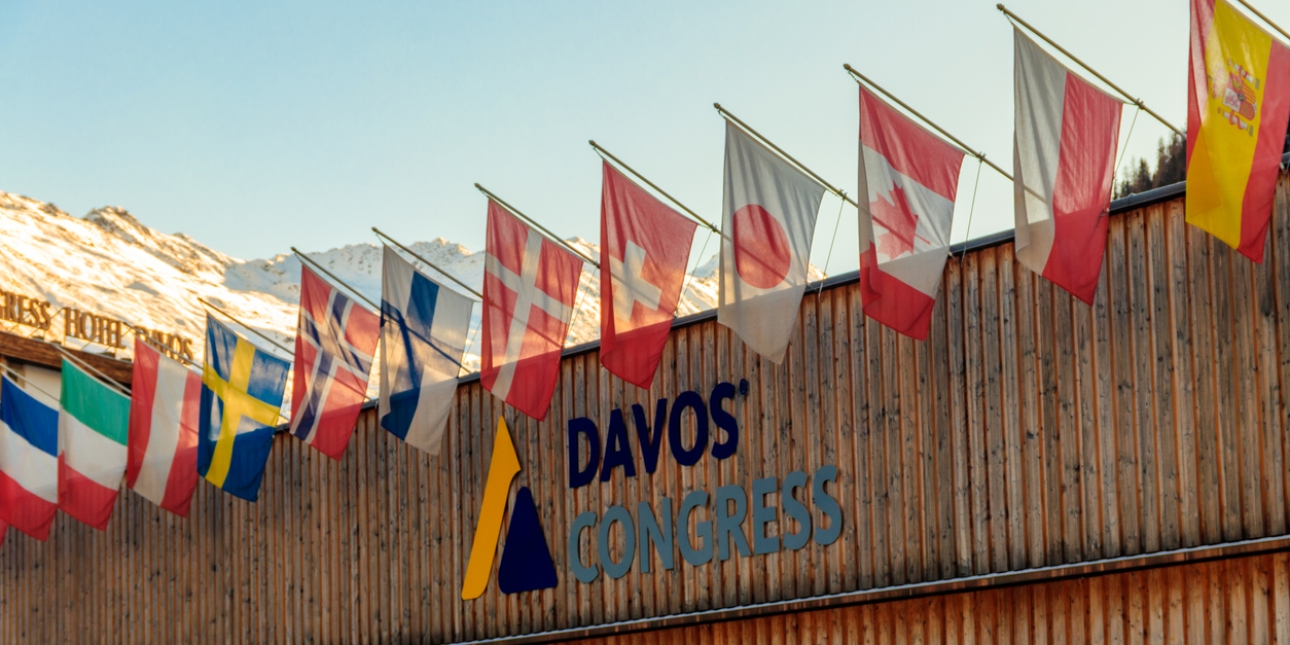Rebuilding Trust: Do events such as Davos have a reputation problem?
As the world’s elites descended upon Davos, one comms specialist asks whether the global get-together is doing enough to prove its relevance…
Coming hot on the heels of Cop28, I was interested to see “Rebuilding Trust” is the theme for this year’s World Economic Forum (WEF) annual meeting at Davos. Both Cop and Davos have been the subject of increased scrutiny over the last few years. Questions have been raised over the value of both events. Are they truly inclusive? Do they deliver meaningful change? Or are they at best talking shops and at worst corporate jollies?
If a measure of reputation is the company you keep and attract, then the absence of the highest profile and arguably most influential leaders at both events should be a concern. Neither the US or Chinese presidents attended Cop28 in Dubai, or the previous few meetings at Davos.
The WEF’s response to fewer political leaders attending was to highlight the increasing number of business-leaders in attendance. Interestingly, Cop, which has historically kept the business community at arm’s length, put business front and centre this year. But to what effect?
A conference to address global action on climate change taking place in an oil state such as the UAE was always going to divide opinion. Appointing Sultan Al Jaber, the chair of oil giant Adnoc, as Cop28’s president – the first business leader to hold the position – was highly controversial, especially as the media exposed alleged oil deal discussions taking place alongside the climate negotiations.
Whether you believe that everyone (including big oil) needs to have a seat at the climate table or not, the increased involvement of the fossil fuel sector certainly attracted attention and created headlines. Interestingly, the overall standing of Cop seems untarnished.
A quick analysis of global media (both social and traditional) sentiment for this year’s event vs Cop27 in Egypt found that sentiment has improved. At Cop28, a number of high-profile agreements and announcements were delivered in quick succession, possibly helped by the Cop president’s ‘business-minded’ approach.
When the landmark agreement on the loss and damage fund was announced on Cop28’s first day, many commentators were surprised by the speed at which the agreement was reached. This was swiftly followed by the endorsement by 130 world leaders of the Cop presidency’s food systems transformation declaration. Agreements on rules for international carbon markets, along with oil companies agreeing to end routine flaring and reduce methane emissions by 2030 all contributed to a feeling of momentum and progress. Despite the controversy surrounding the event, it’s clear the decision to involve business hasn’t harmed Cop’s reputation. It may well have enhanced it.
As we move onto Davos [14-19 January], what can be done to demonstrate its relevance? Unlike the clear goal/purpose of Cop, the WEF’s annual meeting has lofty but somewhat nebulous aims to ‘improve the state of the world’. It’ll always be hard to prove the value of an event with such broad-brush goals.
It is interesting that WEF has chosen ‘Rebuilding Trust ‘as this year’s theme. Public trust in pretty much every institution has been eroded in recent years, not helped by 2023 being another economically and politically turbulent year. New conflicts have arisen. Many countries are teetering on the edge of recession. Many of the world’s largest companies have made significant lay-offs. Meanwhile, the commitment of the business world to help solve world problems has come under fire. 2023 saw CEOs from a variety of sectors row back on their commitments, prompting them to revise the role of purpose within their organisations.
However, many more businesses have increased action. Our Team Lewis annual Marketing Engagement Tracker includes analysis of what the top 300 global companies (according to Fortune) have publicly reported when it comes to sustainability and ESG. In 2022 just 55 companies mentioned carbon reduction on their website. This year 239 of the top 300 businesses publicly disclosed their carbon reduction achievements and plans. DEI efforts also increased.
This is the start of a record election year in which world leaders will undoubtedly be even more focused on domestic issues and opinion ratings, and yet there is a vacuum of actual global leadership and action. At Cop28, businesses demonstrated the momentum that can be achieved when it’s invited to the party. Can Davos become a forum where business leaders take up the mantle and fill the action leadership void?
The WEF provides a platform for collaboration and cooperation for like-minded organisation, with its First Mover’s Coalition being just one great example. Facilitating practical support to restore power in Ukraine is another. Ultimately, there’s a reason that business leaders continue to attend Davos in large numbers. It’s not because it’s a jolly. It’s because it’s a genuinely valuable event for them, in terms of the connections they make and conversations that take place. The challenge for WEF is to demonstrate how Davos benefits everyone else. Its reputation could depend upon it.
Helen Ellis is head of Vivid, a corporate consultancy at Team Lewis.


